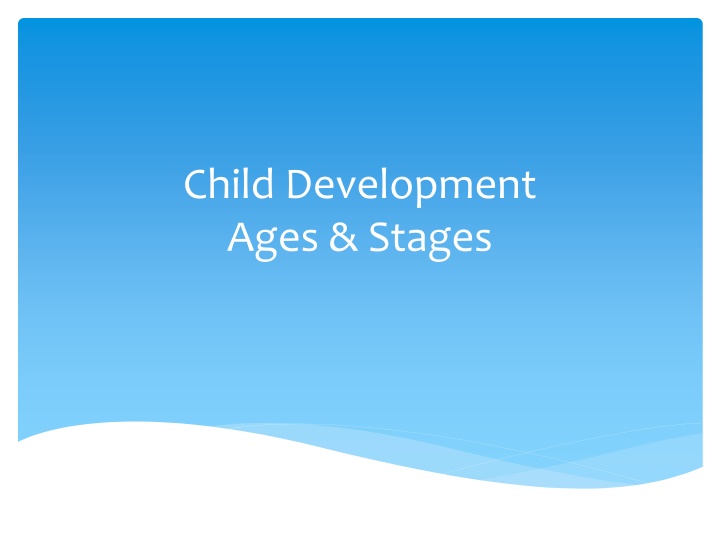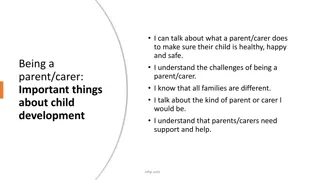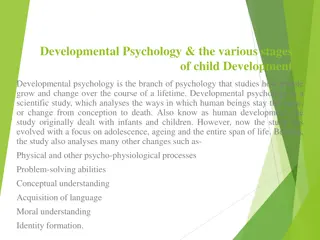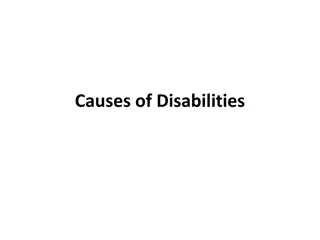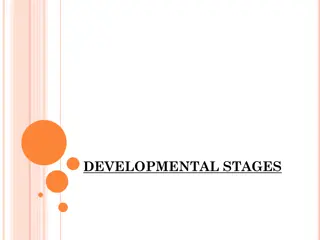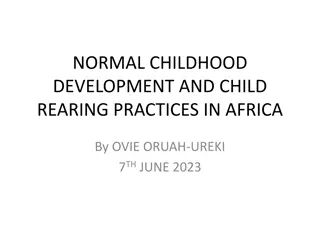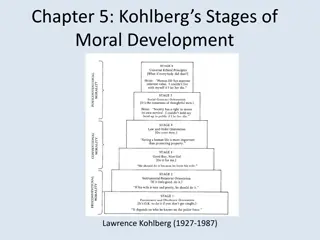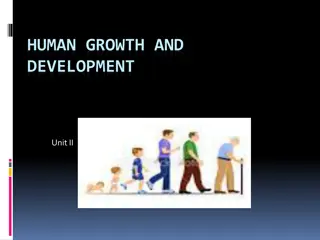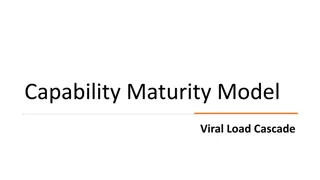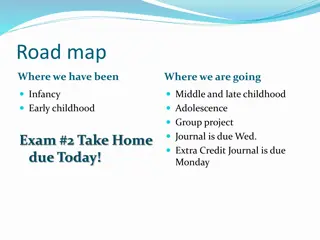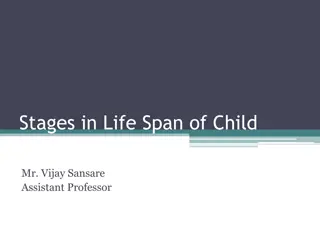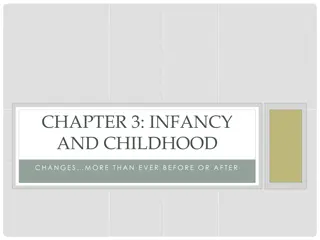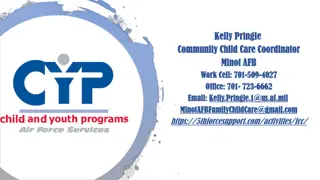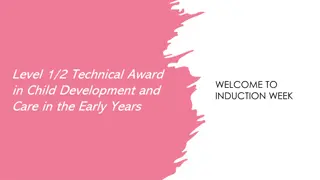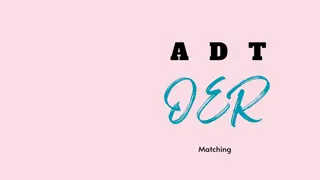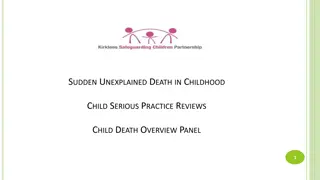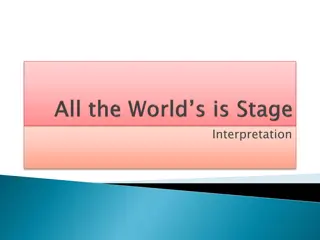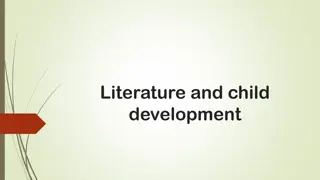Child Development Ages & Stages: From Infancy to Toddlerhood
This comprehensive guide outlines the various stages of child development from infancy to toddlerhood. It covers the physical, cognitive, and social milestones that infants and toddlers reach, including milestones such as grasping reflexes, babbling, crawling, and self-feeding. The content highlights how infants learn through senses and play, as well as how toddlers develop intellectually by reasoning and associating words with objects. Understanding these developmental stages is crucial for parents and caregivers to support and nurture children effectively.
Download Presentation

Please find below an Image/Link to download the presentation.
The content on the website is provided AS IS for your information and personal use only. It may not be sold, licensed, or shared on other websites without obtaining consent from the author.If you encounter any issues during the download, it is possible that the publisher has removed the file from their server.
You are allowed to download the files provided on this website for personal or commercial use, subject to the condition that they are used lawfully. All files are the property of their respective owners.
The content on the website is provided AS IS for your information and personal use only. It may not be sold, licensed, or shared on other websites without obtaining consent from the author.
E N D
Presentation Transcript
Child Development Ages & Stages
Developmental Ages & Stages Infant Age: Birth-12 months Toddler Age: 1-3 years old Preschooler Age: 3-5 years old
Infant Development First Month Newborns have trouble controlling their actions. Use natural reflexes for grasping, sucking, and rooting Newborns are unaware of their surroundings. Senses are immature Spend the majority of time sleeping
Infant Development Two to Three Months Spend more hours awake Use crying, cooing, and smiling to let care givers know what they need or want Like watching their own hands and play with their fingers or toes Move their heads to follow sound Start reaching for objects
Infant Development Four to Eight Months Muscles become stronger Can hold heads up without support Begin rolling over Laugh out loud Start interacting more with other people Very curious about their surroundings Start crawling Start babbling words indiscriminately
Infant Development Nine to Twelve Months Can pull themselves up and may start cruising along the furniture Start understanding between right and wrong Start self feeding Start saying words like mama or dada discriminately May start walking
How Infants Learn Using their senses Playing (Peekaboo, Pat-a-Cake, etc.) Love & Attention
Toddler Development Physical Development Do not gain weight as quick as infants Bodies become longer and straighter Learn to use fingers to do small tasks Physical changes allow toddlers to walk, climb, and feed themselves.
Toddler Development Intellectual Growth & Development Begin reasoning Begin associating words with objects Can name some body parts Can complete simple puzzles or shape sorters
Toddler Development Emotional Development Become easily excited or upset Scared of strange people Experience separation anxiety Temper tantrums are common
Toddler Development Social Development Begin using language to communicate Become more aware of their environment One-year-olds tend to play by themselves Two-year-olds begin playing around others but not with others (parallel play) They say no often
How Toddlers Learn Playing Adults reading to them Exploring
Preschooler Development Physical Development Do not grow as fast as infants Gain weight slowly while growing taller Muscles grow stronger Gain control of their large and small muscles Dresses self
Preschooler Development Intellectual Development More developed thinking skills Starts reciting ABC s and counting Sorts objects by name and color May repeat words several times because their brain works faster than their tongue can move
Preschooler Development Emotional Development Begin learning to control their emotions They still need guidance and support Moods can change quickly
Preschooler Development Social Development More independent than toddlers I want to do it is a common request Likes helping out with household tasks They say no less often than toddlers Begin cooperative play May fight but make up quickly
How Preschoolers Learn Playing Adults reading to them Daily routines Helping out with household tasks (even if they do things wrong)
Things to Remember Assist infants with early brain development by cuddling, playing, and talking to the baby in a consistent manner. Each child grows and develops at a different rate. Every child needs consistency, nurturing, love, affection and time to play in order to grow. Children grow physically, intellectually, emotionally, and socially.
